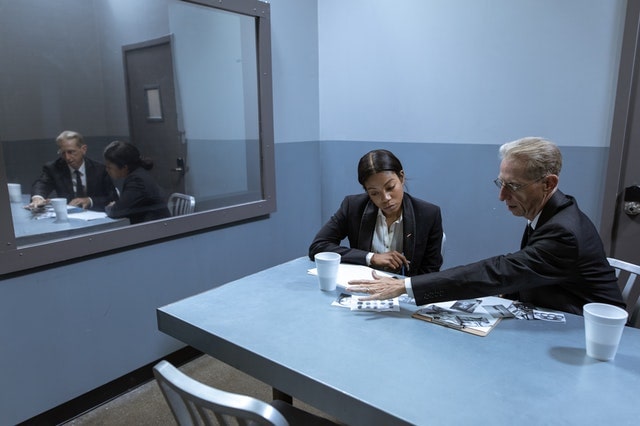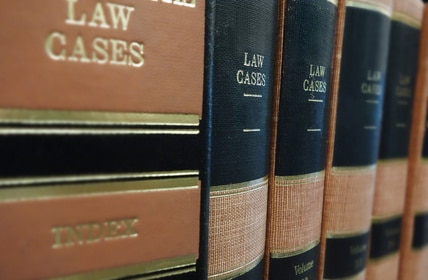The Value of Habeas Corpus in Legal Defense: Lawyer's Viewpoint
Wiki Article
Understanding the Role of a Post-Conviction Attorney in Seeking Justice After a Criminal Sentence
In the complex landscape of post-conviction legal proceedings, the function of a post-conviction attorney is crucial in navigating the path to justice after a criminal conviction. Past the confines of a trial, these lawful experts involve in a diverse strategy focused on uncovering brand-new proof, challenging legal errors, and advocating for their clients' legal rights. The ins and outs of post-conviction job need a blend of legal acumen, investigative abilities, and calculated assuming to decipher the complexities of a case and go after avenues that might have been forgotten or underexplored. As the quest of justice extends past the confines of preliminary procedures, the function of a post-conviction lawyer becomes a sign of hope for those looking for to rectify oppressions and reclaim their civil liberties within the legal system.Post-Conviction Legal representative's Investigative Job
Post-conviction legal representatives take part in precise investigative work to reveal new evidence, procedural mistakes, or misbehavior that might potentially cause overturning a sentence. This investigatory stage is vital in the post-conviction procedure as it aims to determine any type of forgotten information or lawful mistakes that might have impacted the result of the initial test. Post-conviction attorneys look into case data, witness statements, and lawful documentation with a fine-tooth comb, looking for any kind of disparities or abnormalities that might be grounds for charm.
Via thorough investigation, post-conviction lawyers intend to clarify potential injustices that might have happened during the original trial. They may conduct interviews, talk to specialists, and review forensic evidence to develop an engaging case for their clients. By inspecting every facet of the legal proceedings, post-conviction lawyers work relentlessly to reveal any variables that might have affected the decision. Eventually, their investigative work plays a pivotal function in the pursuit of justice and the potential reversal of wrongful sentences.
Crafting Appeals and Petitions
In the pursuit of justice after a sentence, knowledgeable legal representatives diligently craft allures and petitions to present compelling arguments for the reconsideration of legal choices. Crafting allures and applications requires a deep understanding of the lawful system, attention to information, and calculated reasoning. Post-conviction legal representatives evaluate test documents, recognize prospective errors or offenses of rights, and establish lawful arguments to challenge the sentence or sentence.When crafting an allure, lawyers concentrate on highlighting legal mistakes that may have influenced the outcome of the situation. They investigate situation law, laws, and legal criteria to sustain their disagreements. Requests, on the other hand, may involve offering new evidence that was not readily available throughout the test or showing adjustments in the law that necessitate a testimonial of the conviction.
In addition, post-conviction legal representatives have to stick to strict step-by-step guidelines and deadlines when submitting charms and requests. They have to offer their debates plainly and persuasively to encourage the court to give alleviation to their clients. Via thorough crafting of appeals and applications, post-conviction lawyers aim to safeguard justice for individuals who have been wrongfully founded guilty or unfairly sentenced.

Going After Post-Conviction Alleviation
Post-conviction relief incorporates a range of lawful mechanisms designed to test the legitimacy of a sentence or sentence. Post-conviction legal representatives play a critical duty in navigating these complicated procedures, guaranteeing that all legal alternatives are discovered to fix oppressions that might have taken place throughout the trial or sentencing stage.One typical type of post-conviction alleviation is filing an application for post-conviction relief, commonly based upon claims of inefficient support of counsel, prosecutorial transgression, recently uncovered evidence, or constitutional offenses. These petitions need an extensive analysis of the trial document, lawful research, and persuasive campaigning for to encourage the court to approve relief. Experienced post-conviction attorneys have the skills and knowledge required to identify feasible lawful cases, conduct investigations, and existing compelling arguments to protect alleviation for their clients. By carefully pursuing post-conviction alleviation, these lawyers strive to deal with losing the unborn babies of justice and maintain the concepts of fairness and due process in the criminal justice system (Lawyer).
Utilizing Forensic Evidence
When testing a sentence or sentence, the tactical utilization of forensic evidence can be an effective device in post-conviction lawful process. Forensic evidence includes a wide variety of clinical methods utilized to examine criminal activities and develop facts in court. Post-conviction attorneys can leverage forensic evidence to test the legitimacy of sentences by presenting brand-new scientific findings that were not readily available during the initial trial.
Taking Part In Sentence Modifications
Post-conviction attorneys might discover the possibility of sentence alterations as a lawful opportunity to address out of proportion or unjustified sentences passed on in criminal instances. Sentence adjustments involve looking for modifications to the terms of an accused's sentence after a conviction has happened. These adjustments can consist of reducing the size of a sentence, modifying the kind of punishment enforced, or exploring different sentencing alternatives.Post-conviction why not look here lawyers can pursue sentence modifications via different legal systems, such as submitting motions for sentence decrease, appealing for caring launch, or discussing plea deals for reduced sentences. They must thoroughly examine the conditions of the case, assess the legal premises for looking for a modification, and present compelling arguments to the court sustaining the requirement for a modified sentence.
Participating in sentence adjustments requires an extensive understanding of criminal regulation, sentencing guidelines, and the certain treatments associated with looking for post-conviction alleviation. Post-conviction lawyers play an essential function in supporting for reasonable and simply outcomes by tough sentences that are unduly severe or do not align with the concepts of justice.
Final Thought
To conclude, the role of a post-conviction lawyer is vital in looking for justice after a criminal conviction. With investigative work, crafting allures and applications, seeking post-conviction alleviation, making use of forensic proof, and participating in sentence adjustments, these lawyers play a crucial duty in advocating for their customers and guaranteeing that their rights are maintained within the criminal justice system. Their commitment and know-how are necessary in navigating the intricacies of post-conviction proceedings and attaining a fair outcome for individuals encountering criminal convictions.Report this wiki page